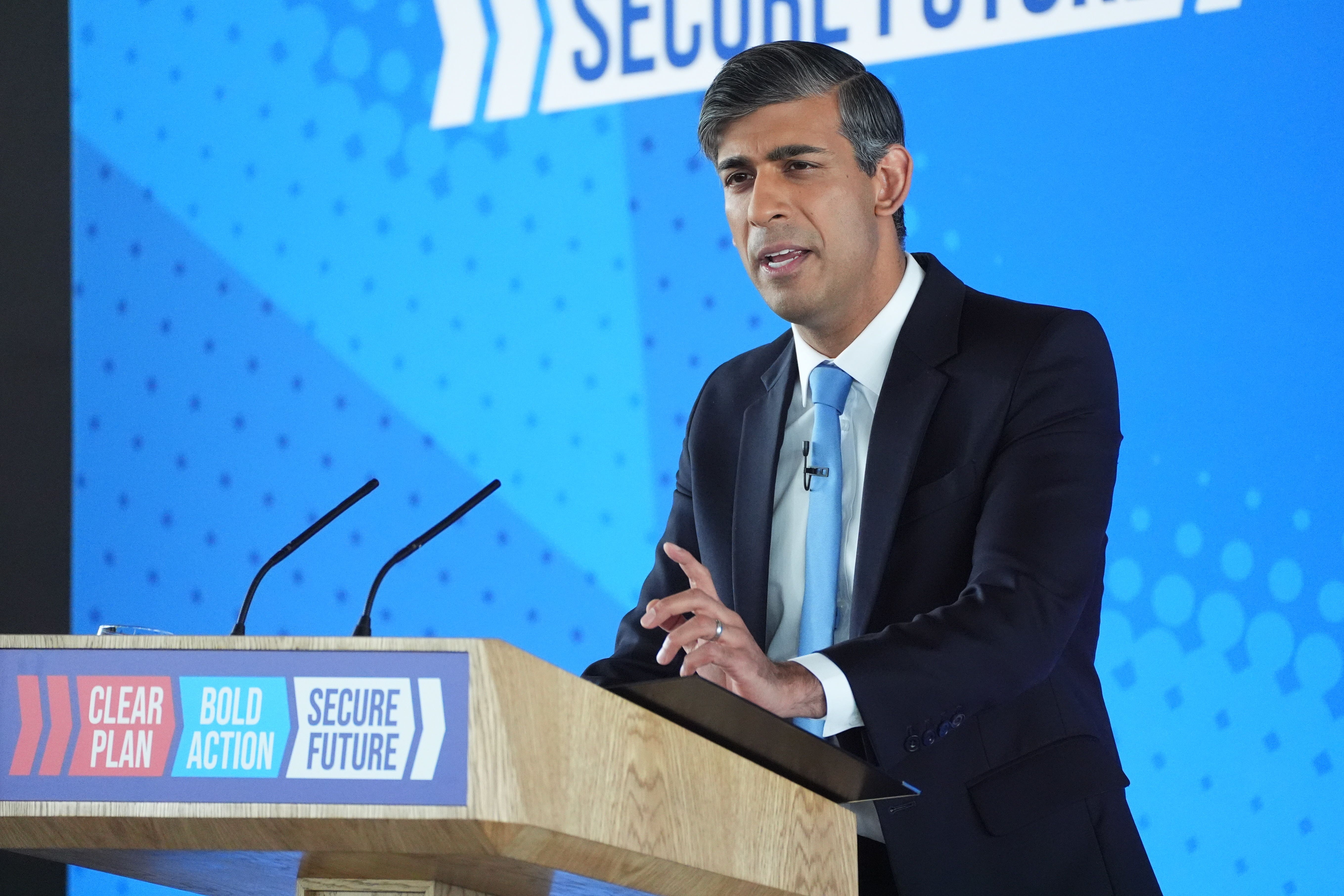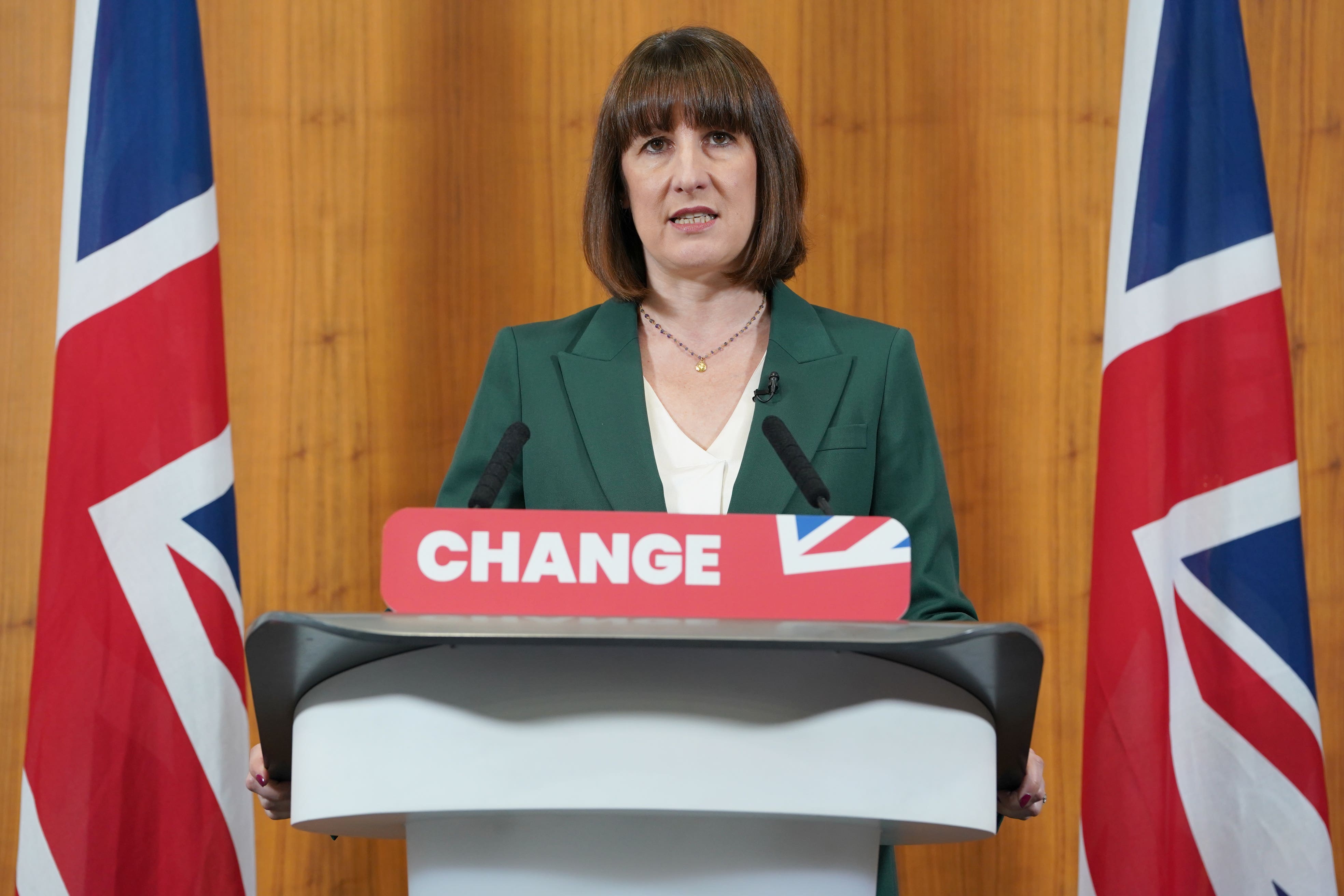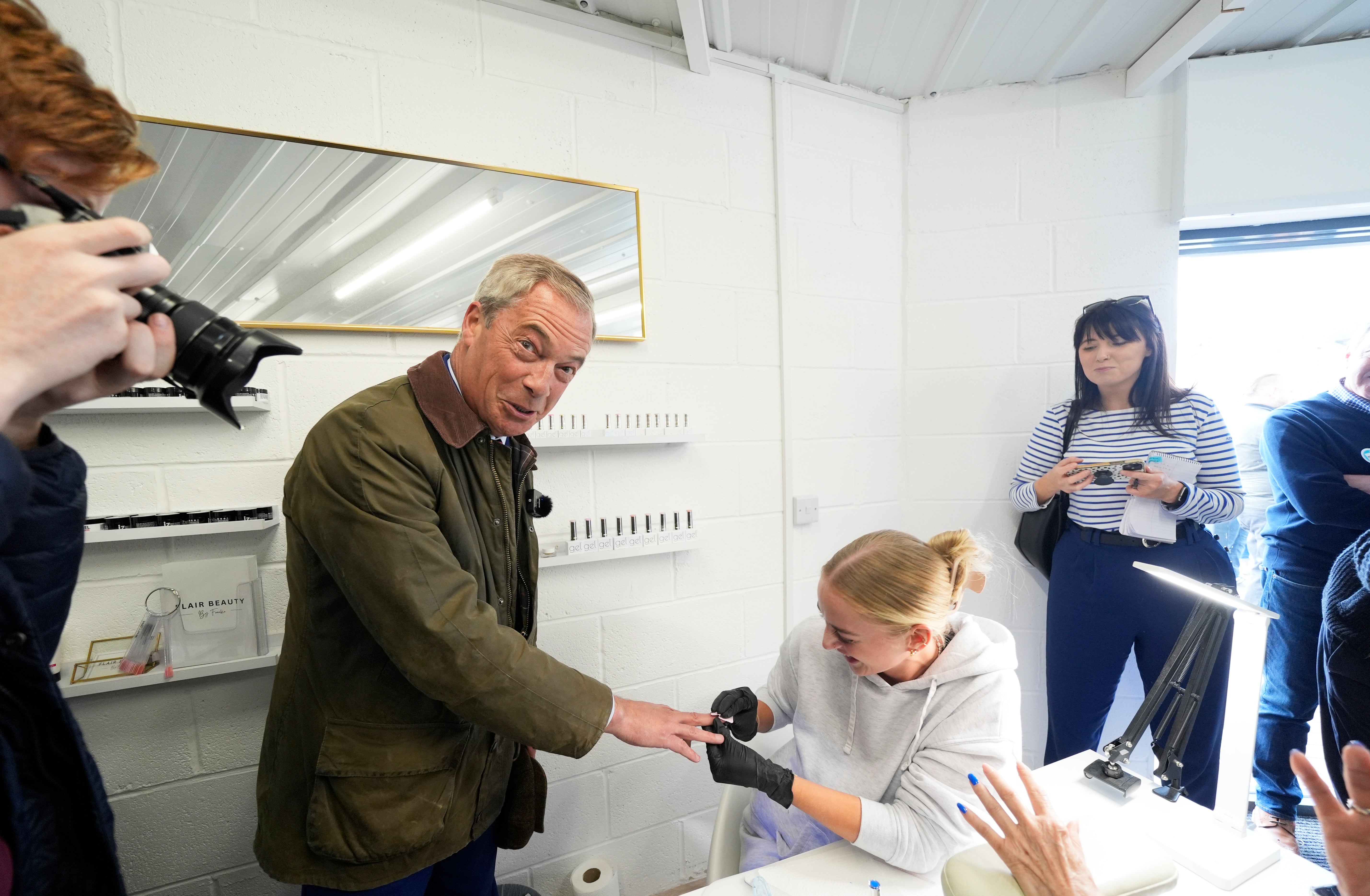Rishi Sunak’s final election gamble: I’ll cut taxes by £17bn and migration by 50%
Sunak invokes spirit of Thatcher with national insurance cuts, new Help to Buy scheme, and Rwanda flights – as Labour attacks ‘Corbyn-style manifesto’ of ‘unfunded promises’

Rishi Sunak drew comparisons with his predecessor Liz Truss and her disastrous mini-Budget as he unveiled a manifesto containing £17bn of tax cuts.
The grand unveiling at the Silverstone Formula One racetrack was seen as a last chance for Mr Sunak to turn around his party’s flagging fortunes in an election campaign that has been filled with missteps as the Tories remain stuck at around 20 points behind Labour.
It came on the same day as a YouGov poll showed that Reform UK is closing in on the Tories at just one point behind, with 17 per cent to the Conservatives’ 18 per cent.
A Redfield and Wilton poll also revealed that Nigel Farage was ahead of Mr Sunak as “best leader of the opposition to a Labour government”, with 28 per cent against 27 per cent.
But Mr Sunak’s manifesto drew criticism from economists and was lampooned by Labour, whose analysis suggested it amounted to at least £71bn of “unfunded pledges”, including the £17bn of tax cuts.

Shadow chancellor Rachel Reeves claimed that this would add £4,800 to people’s mortgage payments, based on an interest-rate hike she said would be necessitated by the borrowing she claimed would be required to fund the Tory manifesto promises.
Meanwhile, Conservative MPs and candidates were frustrated over the failure to include a plan to either leave or reform the European Convention on Human Rights or to get rid of targeted levies such as inheritance tax.
There are suggestions that an alternative Tory manifesto could be launched next week as a challenge to Mr Sunak.
However, many were pleased by the help for “White Van Man”, with the promise that 4 million self-employed people would be exempted from national insurance.
The new, controversial £4,800 figure relating to the increase to people’s mortgages over five years – which Labour conceded was based on the average mortgage rather than all mortgages – drew comparisons with the disputed claim made by the Tories that Labour would have to put up taxes by £2,000 per household as a result of its promises.
When challenged on this by The Independent, Ms Reeves insisted that she would tackle voter apathy by “being honest with voters” and accounting for how Labour’s pledges will be paid for “line by line”.

But while she joined the Tories in ruling out an increase to income tax, national insurance or VAT under a Labour government, she refused to rule out raising other taxes, including capital gains tax. Ms Reeves insisted that currently “there are no plans” to increase capital gains tax, and insisted that she “wants to be a tax cutter”.
But her focus was on the Tory pledges, which she said would lead to a Liz Truss-style meltdown in the economy.
She pointed to Conservative manifesto plans to abolish national insurance for the self-employed, cut 2p off national insurance for employees, guarantee state pensions with a “triple lock plus” against tax rises, and extend child benefit to households with a joint income of up to £120,000.
Other Tory pledges have included spending 2.5 per cent of GDP on defence by 2030, introducing 8,000 more police officers, reviving the Help to Buy scheme for first-time buyers, and bringing in compulsory national service for school-leavers.
At the campaign launch at Silverstone in Northamptonshire, the prime minister spent much of his speech warning of tax rises under Labour.
But on the topic of his party’s own plans, Mr Sunak said: “We are cutting taxes for workers, for parents and pensioners, and we are the party of Margaret Thatcher and Nigel Lawson – a party, unlike Labour, that believes in sound money.”
He set out plans to slash immigration as he responded to political pressure from the right of his party and concerns about the threat posed by Reform UK.

Mr Sunak was questioned on the promise to halve migration with no fixed timetable after 14 years of failing to bring it down.
He acknowledged that “migration has been too high in recent years”, but said: “Our plan is this: we will halve migration as we have halved inflation, and then reduce it every single year.”
Ms Reeves said Labour analysis suggested that the Tory plans would require an extra £17.4bn of borrowing in 2029-30, and a total of £71bn over the whole five-year period.
That could result in the Bank of England putting up interest rates by 56 basis points, resulting in someone with an 85 per cent mortgage on the average house in England facing £4,800 in extra mortgage payments over the next five years.
She told a press conference in central London: “[Mr Sunak] said he was the antidote to Liz Truss. Instead, he’s cosplaying Liz Truss by again doing what the Conservatives did in that mini-Budget, with £71bn of unfunded commitments.”
The former Bank of England economist warned that after the mini-Budget, “mortgage rates spiralled and people found themselves ... – the 1.5 million remortgaging this year alone – paying £240 extra”.
“So we know what happens when unfunded commitments are made,” she said. “You can’t believe that those commitments are actually going to happen, but what you can guarantee is the financial market turbulence and the higher mortgage rates that they bring.”
Ms Reeves said the £12bn of welfare savings that the Tories claimed would pay for their tax cuts had either already been accounted for by the Office for Budget Responsibility or could not be delivered.
A Conservative spokesperson said: “Once again, Reeves is confusing facts and fiction on numbers. Rachel Reeves’s chaotic and panicked dossier is full of complete nonsense and capped off with the extraordinary claim that it will cost the taxpayer £5.7bn to cut the civil service back to pre-pandemic levels.”
But Labour’s shadow chancellor was supported by the director of the Institute for Fiscal Studies, Paul Johnson, who questioned Tory claims that they can make £12bn of savings through government efficiency, welfare cuts, and clamping down on tax avoidance.
He said: “[There are] £17bn of tax cuts, £6bn more for defence. These costs are definite. The savings from controlling welfare, reducing tax avoidance/evasion, cutting civil service jobs, may be achievable but are uncertain. Saving £12bn from the projected disability benefit bill will be very tough.”
Labour is set to launch its manifesto on Thursday.
Subscribe to Independent Premium to bookmark this article
Want to bookmark your favourite articles and stories to read or reference later? Start your Independent Premium subscription today.






Join our commenting forum
Join thought-provoking conversations, follow other Independent readers and see their replies
Comments